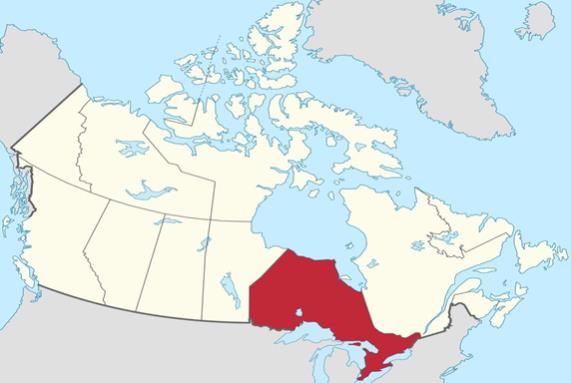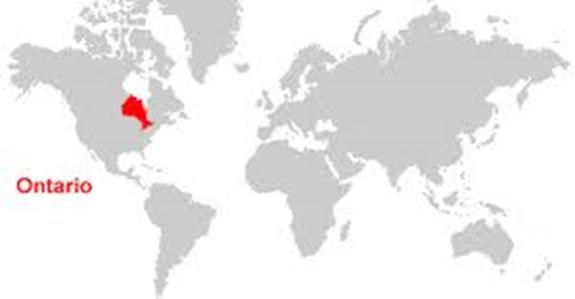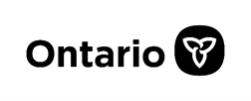The Ontario Health Premium is paid by individuals resident in Ontario on the last day of the taxation year. An individual’s Ontario Health Premium liability is: $0 for taxable income of up to $20,000; 6% of taxable income over $20,000 for taxable income over $20,000 up to $25,000; $300 for taxable income over $25,000 up to $36,000; $300 plus 6% of taxable income over $36,000 for taxable income over $36,000 up to $38,500; $450 for taxable income over $38,500 up to $48,000; $450 plus 25% of taxable income over $48,000 for taxable income over $48,000 up to $48,600; $600 for taxable income over $48,600 up to $72,000; $600 plus 25% of taxable income over $72,000 for taxable income over $72,000 up to $72,600; $750 for taxable income over $72,600 up to $200,000; $750 plus 25% of taxable income over $200,000 for taxable income over $200,000 up to $200,600; and $900 for taxable income over $200,600.
Land Transfer Tax is collected on the transfer of land and is payable on the value of the consideration, which is generally the purchase price. Land Transfer Tax rates are 0.5% on the amount up to and including $55,000; 1% on the amount over $55,000, up to and including $250,000; 1.5% on the amount over $250,000, up to and including $400,000; and 2% on the amount over $400,000. For land with one or two single family residences, the tax rate on the amount over $2,000,000 is 2.5%. Eligible first-time homebuyers may receive a refund of Land Transfer Tax up to a maximum amount of $4,000. An additional 15% Non- Resident Speculation Tax applies to the purchase or acquisition of an interest in certain residential property located in the Greater Golden Horseshoe Region by individuals who are not citizens or permanent residents of Canada, or by foreign corporations (foreign entities) and taxable trustees. Non-Resident Speculation Tax exemptions and rebates may be available if taxpayers meet specific eligibility requirements.
Gasoline Tax is levied on gasoline, propane used in a licensed motor vehicle, and aviation fuel. The tax rate for gasoline is 14.7 cents per litre. The tax rate for propane used in licensed motor vehicles is 4.3 cents per litre. The tax rate for aviation fuel is 6.7 cents per litre; however, as of January 1, 2020, the aviation fuel tax rate in Northern Ontario (the geographic areas of Algoma, Cochrane, Kenora, Manitoulin, Nipissing, Parry Sound, Rainy River, Sudbury, Thunder Bay and Timiskaming) is 2.7 cents per litre. Gasoline tax is pre- collected by registered collectors and importers.
Tobacco Tax covers all forms of tobacco products. The specific tax rate per cigarette and per gram or part gram of fine cut tobacco and all other tobacco products except cigars was last increased from 16.475 cents to 18.475 cents on March 29, 2018. The rate of tax on cigars is 56.6% of the taxable price of the cigar. The majority of tax is collected for the Province by Ministry-designated tobacco and cigar wholesalers.
Fuel Tax is levied on clear middle distillate petroleum fuels, such as those used in diesel-powered vehicles. The fuel tax rate is 14.3 cents per litre, unless the fuel is used in railway equipment, in which case the rate is 4.5 cents per litre. Fuel Tax is pre-collected by registered collectors and importers.
Beer, Wine and Spirits Taxes apply on purchases where the Liquor Control Board of Ontario (LCBO) is not the retailer or wholesaler of the alcohol product. Beer taxes apply on purchases of beer from a beer manufacturer’s on-site store, brew pub, the Beer Store, or a licensed establishment. Wine taxes apply on purchases of wine and wine cooler from on and off-site winery retail stores. Spirits taxes apply on purchases of spirits and spirits cooler from a spirits manufacturer’s on-site store.
Municipal electricity utilities, Ontario Power Generation Inc. and its subsidiaries that are exempt from regular corporate income taxes are liable to make payments in lieu of federal and provincial corporate tax (PILs) to the Ontario Electricity Financial Corporation (OEFC). PILs are equal to regular federal and Ontario corporate income taxes that are levied under the Income Tax Act (Canada), Corporations Tax Act and Taxation Act, 2007 on entities that are not tax exempt.
OEFC is the Ontario Hydro successor company that is responsible for servicing and retiring the debt and certain other liabilities of the former Ontario Hydro. All PILs received by OEFC are used to service and retire its obligations. As a result of an initial public offering of Hydro One common shares in 2015, Hydro One ceased to be exempt from federal and provincial corporate income taxes and is no longer subject to the PILs regime. The Minister of Finance is required by statute to make payments to the OEFC equal to the amount of provincial tax payable by Hydro One Inc. under the Taxation Act, 2007.
Ontario Power Generation (OPG), Hydro One and municipal electricity utilities also make payments in lieu of additional municipal and school taxes to the OEFC. The Gross Revenue Charge (GRC) portion payable to OEFC is also recorded under electricity PILs.
The federal government remits to the province 35 per cent of the net taxes that it collects with respect to preferred share dividends paid by corporations with operations in Ontario.
The Estate Administration Tax is payable by the estate of a deceased person on the issuance of a certificate of appointment of an estate trustee (referred to as an “estate certificate”) by an Ontario court. There is no tax payable if the value of the estate is $50,000 or less. For estates valued over $50,000, the amount of tax is equal to $15 for each $1,000 (or part thereof) of the value of the estate exceeding $50,000.
Ontario levies a mining tax on profits in excess of $500,000 derived from the extraction of mineral substances raised and sold by operators of Ontario mines. The $500,000 annual deduction must be shared by associated corporations. The tax rate on taxable profit subject to mining tax is 10% for non-remote mines and 5% for remote mines. A mining tax exemption on up to $10 million of profit during an exempt period is available for each new mine. The exempt period for a new non-remote mine is three years and the exempt period for a new remote mine is 10 years. The mining tax exemption is also available for a major expansion of an existing non-remote mine. Mining tax does not apply to diamond mining. Diamonds are subject to a royalty on the value of a diamond mine’s output. The royalty rate is the lesser of 13% and the amount calculated on the value of output according to a graduated rate scale.
Provincial Land Tax is levied on land in areas without municipal organization at the rates prescribed by regulation. The rate that applies depends on which property class the land is classified and whether the land is in a locality as defined by the Assessment Act.
The Cannabis Excise Duty is imposed by the federal government on cannabis products, payable by the federal licensee that packages the cannabis products (typically the producer) or, in the case of imports, payable by the importer, owner or other person liable under the Customs Act (Canada). The sale of edible cannabis, cannabis extracts and cannabis topicals became legal under the federal Cannabis Act effective October 17, 2019 and such products are also subject to the federal duty. The federal government is responsible for the collection and administration of the tax. For dried cannabis flower, the excise duty rate is the greater of $1/gram or 10% of the federal licensee’s selling price for the packaged product when delivered to a purchaser (different rates apply for different product types). Ontario receives 75% of the excise duty collected on cannabis products intended for sale in Ontario, plus an additional sales tax adjustment of 3.9% on the federal licensee’s selling price.
6


